ASD FILE: JLCD
AUBURN SCHOOL DISTRICT
ADMINISTERING MEDICATION TO STUDENTS
The Superintendent shall be responsible for establishing specific procedures to control medications administered in schools. Such procedures are found in Appendix JLCD-R.
Prescribed medication should not be taken during the school day, if at all possible. Medication is to be administered by the school nurse, principal or other designee. Medication will be administered in school only after receiving and filing in the student’s health record the following:
1. A written statement from the licensed prescriber detailing the method of taking the medication, dosage, and the time schedule of the medication.
2. A written authorization from the parent/guardian indicating the desire that the school assist the student in taking the prescribed medication.
All medication should be delivered to appropriate school personnel by the parent/guardian. All prescription medication must be delivered and contained in its original pharmacy container. The school nurse is directed to keep such medications in a locked cabinet or refrigerator. No more than a 30-day supply will be kept and maintained by the school. The school nurse will contact the parent/guardian regarding any unused medication. Such medication shall be picked up by parent/guardian within ten days after its use is discontinued. If the parent/guardian does not pick up the medication within ten days, the school nurse may dispose of the unused medication and record as such in the student’s health record file.
The school nurse is responsible for keeping accurate records regarding the administration of medication to students.
Students may possess and self-administer an epinephrine auto-injector if the student suffers from potentially life-threatening allergies. Both the student’s parent/guardian and physician must authorize such self-possession and self-administration. If a student finds it necessary to use his/her auto-injector, s/he shall immediately report to nearest supervising adult. The school nurse or building principal may maintain at least one epinephrine auto-injector, provided by the student, in the nurse’s office or other suitable location. Additionally, students may possess and self-administer a metered dose inhaler or a dry powder inhaler to alleviate or prevent asthmatic symptoms, auto-injectors for severe allergic reactions, and other injectable medications necessary to treat life-threatening allergies. Both the student’s parent/guardian and physician must authorize such self-possession and self-administration.
Students shall not share any prescription or over-the counter medication with another student. Notice of this prohibition will be provided in student handbooks. Students acting in violation of this prohibition will be subject to discipline consistent with applicable Board policies.
This policy shall extend to any school-sponsored activity, event, or program.
In addition to the provisions set forth herein, the school nurse and Principal are responsible for ensuring the provisions of Ed. 311.02, Medication During the School Day, are followed.
The school nurse or other designated personnel may administer other medications to students in emergency situations, provided such personnel has all training as is required by law. Such medication may also be administered in emergency situations if a student’s medical action plan has been filed and updated with the school district to the extent required by law. The district will maintain all necessary records relative to the emergency administration of medication and will file all such reports as may be required.
Legal References:
RSA 200:40-b, Glucagon Injections
RSA 200:42, Possession and Use of Epinephrine Auto-Injectors Permitted
RSA 200:43, Use of Epinephrine Auto-Injector
RSA 200:44, Availability of Epinephrine Auto-Injector
RSA 200:44-a, Anaphylaxis Training Required
RSA 200:45, Student Use of Epinephrine Auto-Injectors – Immunity
RSA 200:46, Possession and Self-Administration of Asthma Inhalers Permitted
RSA 200:47, Use of Asthma Medications by Students – Immunity
RSA 200:54, Supply of Bronchodilators, Spacers or Nebulizers
RSA 200:55, Administration of Bronchodilator, Space or Nebulizer
N.H. Code of Administrative Rules – Section Ed. 306.12(b)(2), Special Physical Health
Needs of Students
N.H. Code of Administrative Rules – Section Ed. 311.02(d); Medication During School Day
The health care provider’s written orders and written authorization of the parents/guardians will be kept on file for three years.
Adopted: March 26, 2002
Revised: September 9, 2002
Adopted: March 8, 2004
Adopted: March 7, 2005
Revised: November 10, 2008
Revised: May 9, 2017
